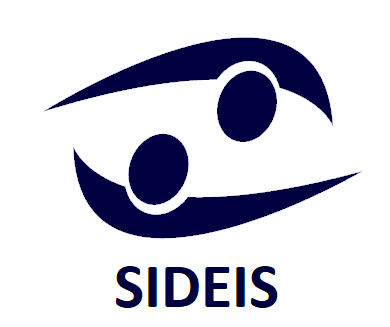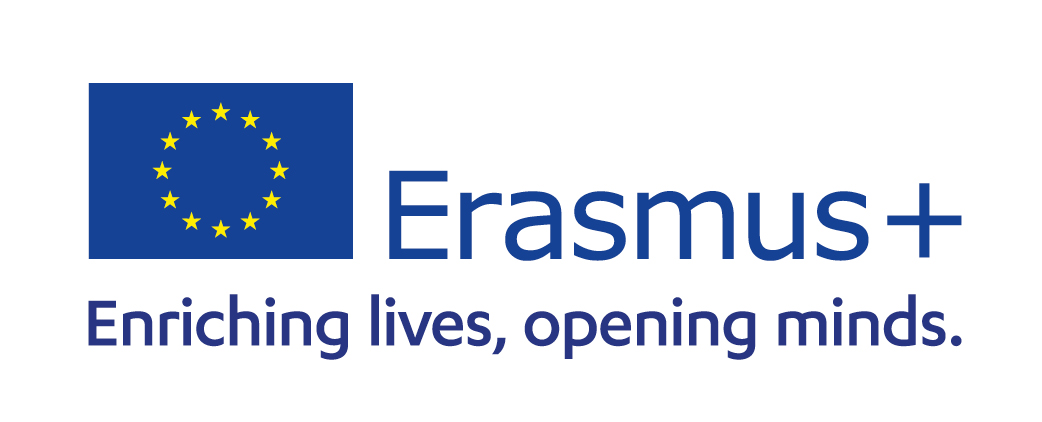

Erasmus+, KA2

The partnership of SIDEIS is trilateral and it is led by a SERN. It comprises four municipalities, one association of schools, two schools and a university.
The target groups of the project are: teachers at pre-school, primary and lower secondary level, Headmasters and school leaders, educators policy makers.
The recent migration waves have been posing increasing challenges to the national education systems and to the quality of education and learning at large. In particular, the presence of an increasing number of pupils with a foreign background in pre- schools, primary schools and lower secondary schools has opened up questions about how to adapt the learning context to a situation characterised by the presence of pupils in the classes not only with different cultural background but different levels of language knowledge.
Because of this there is a need to address more effectively the organisational settings of schools in relation to the continuity between levels (pre-school and primary and primary and lower secondary). There is a need to rethink learning spaces (both virtual/digital and real) and methods facilitating integration while offering opportunities for development and achievements to all students. Finally, there is a need to train the teachers and other staff to deal more effectively with a multicultural situation in the class.
The project “SIDEIS: Developing strategies for innovative learning contexts fostering integration in schools” aims to create the conditions for the creation of a learning context at local level and at school level which is able to meet the challenges posed by the recent migration waves.
The specific objectives are:
1. To exchange good practices on the organizational settings facilitating transition across the different educational levels especially for those with a foreign background
2. To reflect upon and adapt solutions which can lead to effevive digital learning spaces producing a faster integration without jeopardize achievements of the whole class
3. To identify training needs of teachers in relation to learning spaces and the specificities of multicultural classes and define a training path.
The activities foreseen by the project consist of four transnational meetings for coordination, management and evaluation; three transnational seminars targeting transition between school cycles, learning environments and skills of the teachers, a pilot training based on the exchange of practices targeting teachers. The project foresees also five local dissemination meetings.
Coordination Meeting, 24th/25th October2017 , Ravenna (IT)
Coordination Meeting, 30th May /1st June 2018, Madrid (ES)
Coordination Meeting , 31st January / 1st February 2019 Madrid (ES)
Coordination Meeting , 3rdOctober 2019/4th October 2019 Linkoping (SE)
First training seminar, 27 February – 1st March 2018, Collecchio (IT)
It was a three day seminar aimed at illustrating the situation in Italy and Sweden and exchanging practices among the partners on the theme of transition from pre-primary to primary and primary to lower secondary and management of multicultural classes. More specifically, the seminar was focused on finding a common language of social, educational and school integration of migrant pupils. When analysing the transition from different school levels, particular attention was paid to the follow-up of the pupil, to the communication and documentation. The methodology employed have been: presentations in plenary sessions, panel discussions, working groups and study visits. The profile of the participants were mixed: Norrkoping and Linkoping (civil servants, headmasters, pre-school primary school and lower secondary school teachers),
CECE (headmaster and primary school teachers) Ravenna and Collecchio (civil servants and pre-school teachers), IC Guatelli and IC San Biagio (headmaster and primary school teachers) University (researchers), County administrative Board (Civil servant), SERN (civil servants).
Second Training seminar -Linköping May 2018
C2 will be a three-day-seminar was aimed at exchanging practices, methods and approaches on the theme of learning environment in schools (and pre schools) In order to give a common and shared background to all participants, presentations of the school system in Sweden was introduced with a specific focus on the activities linked to the reception and inclusion of migrant pupils. The focus of the meeting was the presentation and analysis of the “real” environment in which migrants are welcomed and the virtual ones that help them in the inclusion and integration process. Particular attention was paid on the perspective of content and the language integration in practice and on methods to make students successful and included. The methodologies employed were: presentations in plenary sessions, panel discussions, working groups and study visits. Working groups discussions were essential to Exchange opinions and experiences on good practices. The profile of the participants were mixed: Norrkoping and Linkoping (civil servants, headmasters, pre-school primary school and lower secondary school teachers), CECE(Headmaters, primary and lower secondary school teachers) Ravenna and Collecchio (civil servants and pre-school teachers), IC Guatelli and IC San Biagio (headmaster and primary school teachers) University (researchers), County administrative Board (Civil servants).
Third Training seminar -Norrköping September 2018
The third seminar was built on the basis of C1 and C2 and it was shaped on the basis of the feedback emerged locally. The objective was to define the content of the final training active C4. Such contents, based on the outcomes of C3, will be articulated by the university. The focus of the meeting was on the identification of a common vision about the philosophy of inclusion with the comparison of the European systems involved and in particular on the key elements for creating inclusion and strong identity in pupils; then, on the definition of a common education and language path pying particular attention to diversity and specific needs as the fight against honor related violence; and finally, on the definition of successful strategies to introduce individual and collective work with teachers. The methodology employed was: presentations in plenary sessions, panel discussions, reflection in groups and study visits. The profile of the participants was mixed: Norrkoping and Linkoping (civil servants, headmasters, pre-school primary school and lower secondary school teachers), Ravenna (civil servants), CECE (primary and lower secondary school teachers),IC Guatelli and IC San Biagio (headmaster and primary school teachers) University (researchers).
4th Training Seminar – Parma – 12-15 May 2019
From 14 to 17 May 2019 a training course was held as part of the activities of the sideis project (C4), that involved about 40 participants (teachers of preschool, primary and lower secondary school). The training path had the following objectives:
– To promote the comparison between participants about some key issues concerning inclusive
teaching practices in different school levels (pre-school services, primary school and lower secondary education) and across them;
– To analyse specific themes identified by teachers’ and educators’ training needs;
Methodology:
the path included alternation between more traditional teaching methods (thematic lectures and seminars) and Active teaching methodologies, oriented to involve the participants in order to activate their personal interests, motivations, resources and experiences (case studies, workshops, plenary debate …) and to stimulate active learning experiences.
Contents:
• design and evaluation of inclusive educational interventions;
• school, cultures and representations of diversity;
• relationships between school and culture; • prejudices and stereotypes; •
inclusive communication strategies;
• designing media literacy and intercultural education activities for children
• inclusive relationships between school and families.
Participants: about 40 teachers/trainers/pedagogic
coordinators working in schools and educational services for children from 3 to 14 years old coming from Italy, Sweden, Spain.
The main impact of the project on the participants and their organisations can be summerised as follows
Civil Servants and headmatseers:
• ideas/tecniques/methods/experiences applied by civil servants in their local contexts.
• To be even more aware of the intercultural issues spinning around the theme of inclusion.
• More communication with the families and the legal Guardians implemented at school level
• More individual scaffolding and support, according to the need of every pupil/ listening to the child.
• Increased awareness about the fact that more digital features and practices in the class can facilitate inclusion.
• More attention to the culture of origin and to the mother tongue can facilitate inclusion and language learning processes.
Increased awareness concerning the participanting teachers:
• Importance of professional development and continuous in-service training emerged
• ideas, experiences, approaches as way to open mind and improve the teaching were exchanged
• Increased awareness and knwoledge about practices of collaboration with the families.
The main impact across the partner organisations was the following
Ravenna Municipality:
In the framework of SIDEIS Ravenna has developed a Language Map through the help of Prof. Favaro as a tool to facilitate the passage of a child with a
foreign background to the next educational level. The map, added to the information sheets describing the skills acquired by the observed child within the
end of pre-school, would help primary school teachers with the knowing of the linguistic situation of the child and his/her family.
Teachers worked to make learning spaces more inclusive by promoting inclusive processes for all boys and girls and their families. They also built up a
context fostering multiculturalism. They have worked to improve self-esteem, communication, dialogue, reciprocal acknowledgment and enhancement,
respecting one’s identity and cultural belonging.
Linkoping Municipality:
Linkoping has identified areas of development that should be improved when a child’s transition to the next educational level occurs: secure
documentations assured by handling it on a digital municipal platform; quality of documentation and practices concerning transition assured by cooperating
with other actors working in schools (teachers, headmastes); involvement of legal guardians in the transition process both by informing them about the
process, options, rights and obligations, both by inviting pupils in sharing the setting of future goals with legal guardians.
IC Guatelli :
The Guatelli School renewed its Welcome Protocol consisting in reception test, and alphabetization, interschool project, activities 1 to 1 with an expert, L2
Course and final test. The protocol has been renewed by introducing a team discussion of the topic, by facilitating access to materials and docs, by listing
activities and establishing contacts with external mediators. Also, an Inclusion Referent more dedicated has been introduced.
The Guatelli School opted for organizing training seminars in the school addressed to teachers with a focus on the practices tested at local level , in order
to let them develop some specific skills (L2) and to share training experiences. After the training activities the school started the Pilot Progetto Interclasse
where teachers with specific skills deals with (not external experts); active method NOT in extra time.
IC San Biagio:
In order to deal with newly arrived students, San Biagio school created a team of teachers (Commission for the Foreign Pupils’ Inclusion) who exchange
ideas, solutions, policies during meetings and training events. The teachers belong to different educational levels (primary and secondary) and oversee the
planning of activities to support the children in needs. They also organize dissemination events.
CECE
In relation to Objective 1 SIDEIS served us to analyze and improve teaching practices where students had a very important role while valuing how other
educational centers have facilitated the transition of immigrant students across stages. Additionally the project has helped CECE to strengthen the issue of
immigration in the centers belonging to the organisation and, above all, to foment a culture of equity and quality for all our students.
Norrkoping Municipaliy:
In order to assure effective transition of children to next educational level, Norrkoping school implemented Pedagogical Cafès, adopted a holistic and
thematic education for newcomers and let lead teachers supporting colleagues in preparatory classes to generate inclusion. It is also foreseen a focus
group with the newly arrived students and the school takes also advantage of local collaborations and the use of FoUPortalen. Finally, the school focused
on the value of a common understanding and on INCLUSION as concept to be introduced in teams’ protocols.
The project has achived the original objectives and the work programme during the two years of implementation has been carried out as planned in the formulation phase. More specifically the partnership has implemented four Transnational Project Meetings (as illustrated more in detail below) and four LTTA foreseen by the proposal.The three LTTA activities have set the basis for the preparation and implementation of the fourth which was key to the development of one of the main product of project (i.e a training module equipping teachers in fostering learning environment facilitating inclusions).On the
basis of the indicators collected the project partnership has achieved fully most of the planned expected results.

Our objective is to increase cooperation among the
members of the network, between Italy and Sweden
and, more in general, the North and South of
the European Union.
Stradone Martiri della Libertà, 15 – 43123 Parma (PR) – Italy | C.F.: 91251370374
Tel: +39 0521686023 – Fax: +39 0521686023 – Website: www.sern.eu – Email: secretariat@sern.eu – PEC: secretariat@pec.sern.eu
© 2024 | All rights reserved | Privacy Policy | Cookie Policy